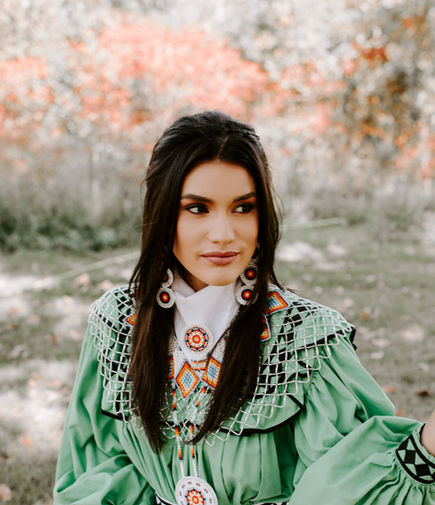

Cherokee

Chocktaw

Khasi
Let’s explore these rich and advanced indigenous matrilineal cultures together! The journey features an overview of Khasi, Choctaw and Cherokee cultures as well as an inside perspective through the lens of prominent women (and men) from these societies. Women who possess great wisdom and are bearers of knowledge from a lost age. These well-known figures in their communities include leading university professors, a prolific writer, an educator, an accounting executive, and a medicine woman, among other guests. Uncover their stories and knowledge here.


Gabriella Srinivasan
Founder & President
Born into a family with diverse roots across different family systems, I have been exposed firsthand to the functioning of both male and female-centric societies. I have also been fortunate to have been surrounded by strong women on both sides of my family throughout my life. Growing up, I have been educated by these female figures about the vital role of women, both currently and historically, in the various aspects of a society’s functioning. However, I was rarely exposed to these important dynamics in my academic education, everyday interactions or media exposure. My curiosity on the subject has led me to research the existence of matrilineal and matriarchal societies to better understand the many roles that women have played historically in the day-to-day functioning of society. Through my exploration, I discovered that female-centric societies were quite prevalent across different continents and cultures, and that some of them still preserve many of their original constructs. I found this intriguing as we are primarily accustomed to male-centric societal constructs. I have found that indigenous matrilineal and matriarchal societies are unknown to most people due to the underrepresentation of such cultures in the mainstream. This prompted me to further research and explore specific tribal cultures, such as the Choctaw and Khasi tribes in my heritage. As the transfer of knowledge in most indigenous cultures has largely been oral and therefore not well documented, I have noticed that much of the history, context, and application of their constructs have neither been well understood by nor widely available to the general public. During my own efforts to explore these cultures, I have found that it has been most helpful to speak with the elders in these cultures to get a more accurate and nuanced understanding of the origins and evolution of the role of women in their societies over time. With this in mind, I wanted to create a platform that could provide firsthand knowledge through multiple outlets such as podcasts, blogs, indigenous literature, links and references, and other informative resources. Living in the Silicon Valley, where technology, social media, and science have been utilized to spread knowledge to communities across the world, I have created Project Matrilineal in order to give people an accessible, centralized resource for exploring indigenous matrilineal and matriarchal cultures. I believe this knowledge is important for the youth in my generation so that they can obtain a better understanding of these female-centric cultures especially during a time when the roles of women are evolving across social, economic, and political realms. I hope that everyone finds Project Matrilineal an educational and enriching space to extend their knowledge beyond the mainstream horizon.
.png)






















